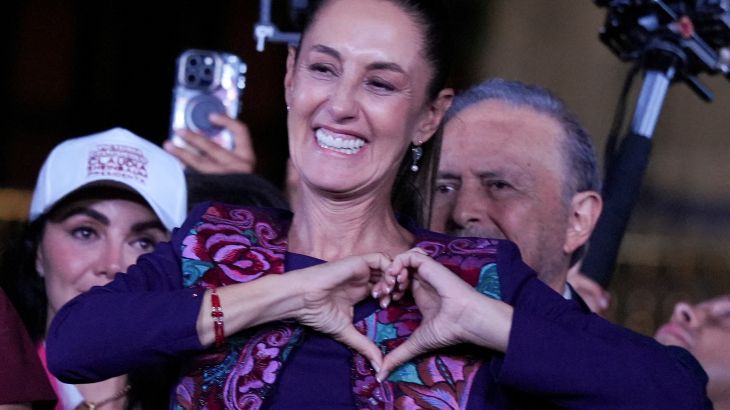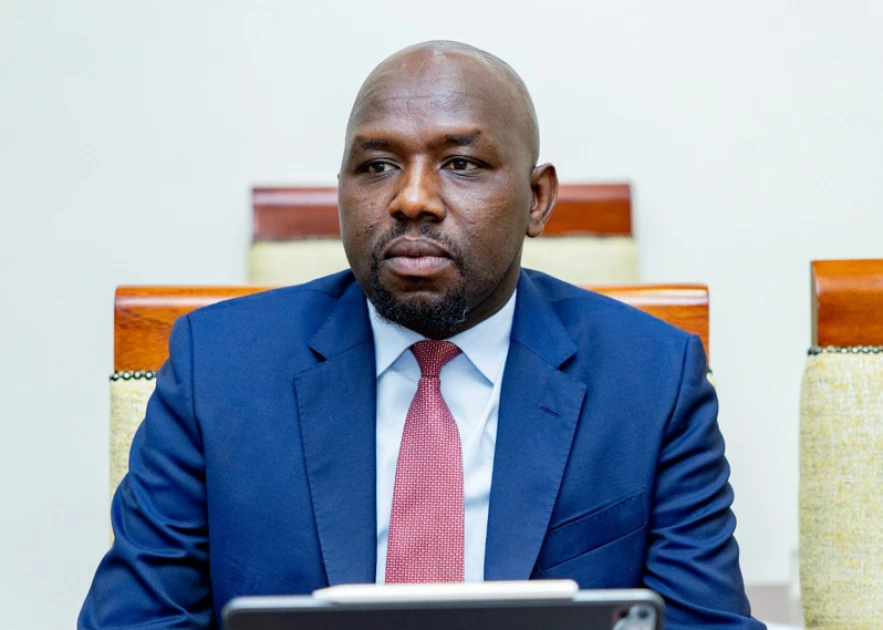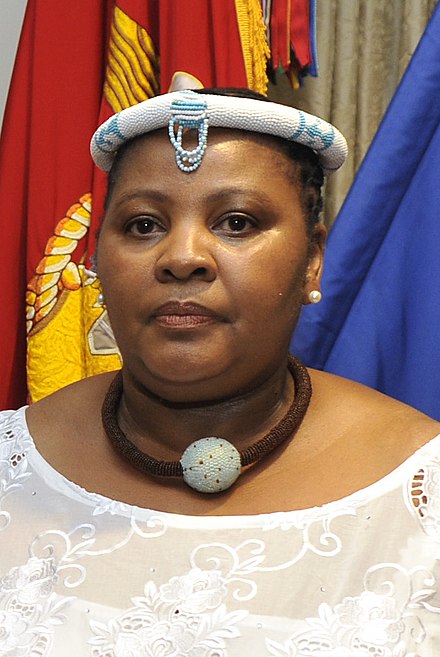Mexico has appointed Claudia Sheinbaum, a former mayor of the capital, as the country’s first female president after a heated election which was held on Sunday, with the nation’s top election authority projecting a comfortable win for the 61-year-old physicist-turned-politician.
Sheinbaum, a protege of Mexico’s outgoing President Andres Manuel Lopez Obrador, is expected to win more than 58 percent of the national vote, the National Electoral Institute of Mexico (INE) said, in what is known as a “quick count” of the vote.
Her win entrenches the governing Morena party’s hold over power in Mexico, six years after Lopez Obrador, also known by his initials AMLO, ran an anti-establishment campaign against the country’s traditionally mainstream parties to win the 2018 election.

“I commit to you that I will not let you down,” Sheinbaum said, in a victory statement on X. “There is history, there is homeland, there is people, and there is commitment.”
Late on Sunday night in Mexico, the principal opposition candidate, Xochitl Galvez, conceded defeat. A trained engineer with Indigenous roots, Galvez rose from poverty to become a tech entrepreneur.
“A few minutes ago, I contacted … Sheinbaum to acknowledge the election result. I told her that I saw a Mexico with a lot of pain and violence and that I hope she can resolve the serious problems of our people,” she was quoted as saying by local media.
During her campaign, Sheinbaum faced questions over her close ties to AMLO a president who enjoys vast popularity in Mexico, despite critics accusing him of authoritarian tendencies including whether she would be able to lead independently.
However, Sheinbaum and Lopez Obrador have insisted that he would hold no influence over her government.
“I am going to retire completely,” he said last year. “I will never again appear at any public event.”
“I do not want to be anybody’s adviser … I will not have any relationship with politicians,” the president said, adding, “I am not going to talk about politics.”
However, there may be some clues in her early life, suggest other analysts.
Sheinbaum grew up in a family deeply engaged in activism, and her involvement began from a young age.
At 15, she volunteered to assist groups of mothers searching for their missing children, while in the 1980s she also joined protests against state intervention in education policies.
She earned her PhD in energy engineering at the age of 33, and as she prepared her thesis, she spent time at the University of California, Berkeley in the United States.
Her political journey started in 2000 when Lopez Obrador, then the newly elected mayor of Mexico city appointed her to serve as environmental leader





















